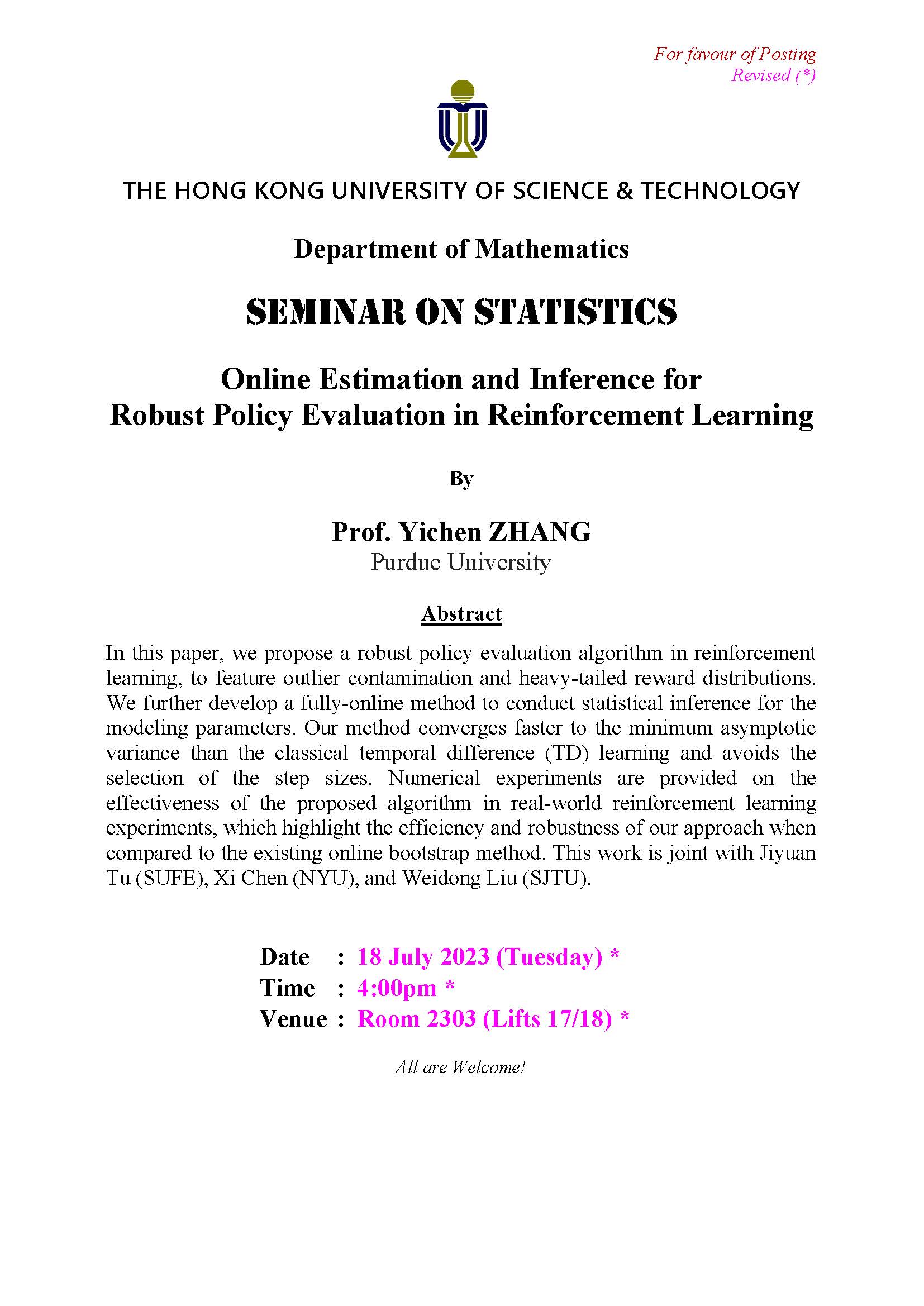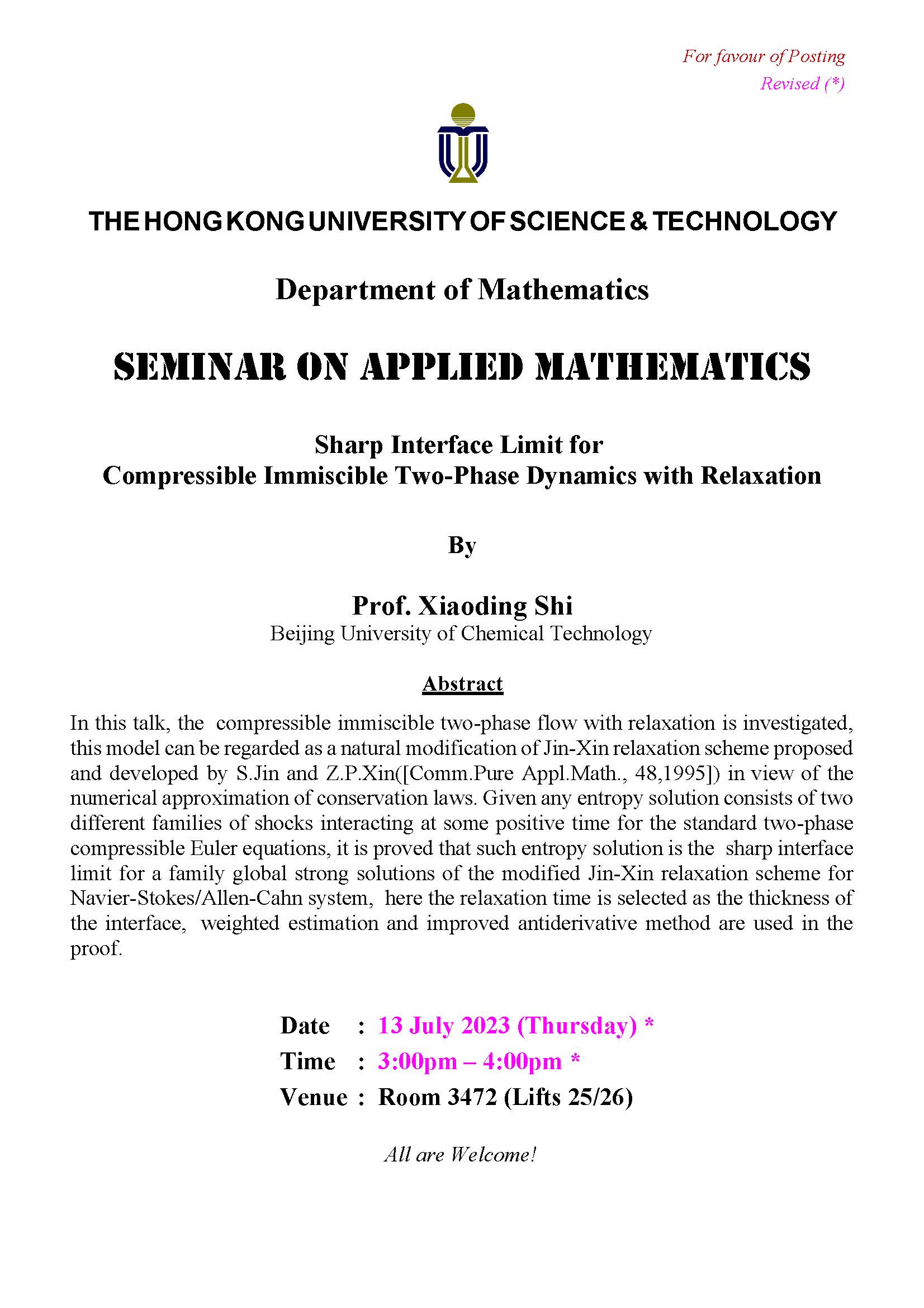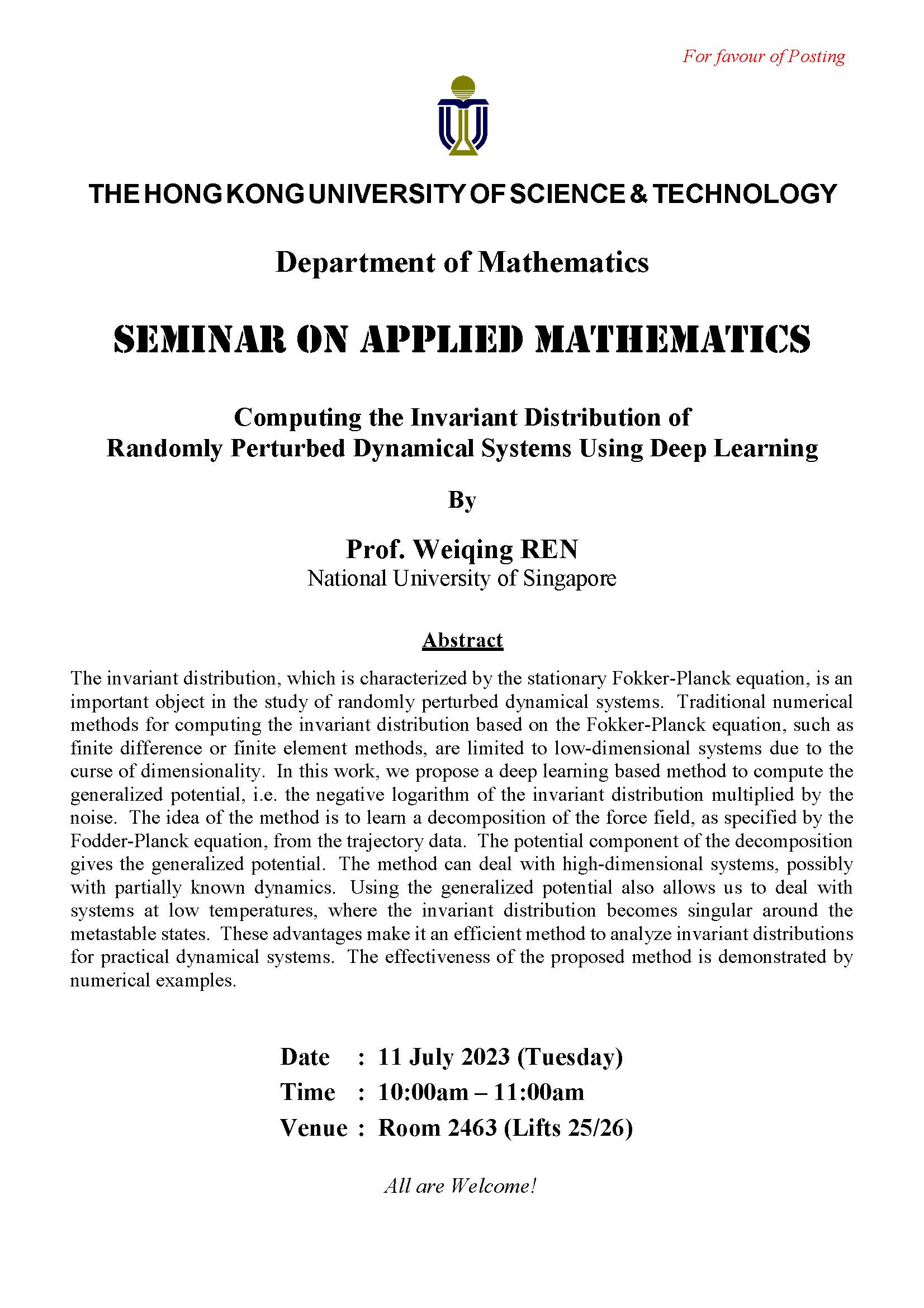
2023年7月19日–8月8日
工作坊
Summer Program on Quantum Technology
To offer unique opportunities for Secondary 4 to 5 students and Year 11 to 12 international school students to explore the fascinating world of quantum computing, the School of Science of HKUST gladly presents the on-campus summer program –
7月19日
研討會, 演講, 講座
Physics Department - Physical Learning and Collective Memory of Adaptive Immunity

7月18日
研討會, 演講, 講座
Department of Mathematics - Seminar on Statistics - Online Estimation and Inference for Robust Policy Evaluation in Reinforcement Learning
In this paper, we propose a robust policy evaluation algorithm in reinforcement learning, to feature outlier contamination and heavy-tailed reward distributions. We further develop a fully-online method to conduct statistical inference for the modeling parameters.

7月13日
研討會, 演講, 講座
Department of Mathematics - Seminar on Applied Mathematics - Sharp Interface Limit for Compressible Immiscible Two-Phase Dynamics with Relaxation
In this talk, the compressible immiscible two-phase flow with relaxation is investigated, this model can be regarded as a natural modification of Jin-Xin relaxation scheme proposed and developed by S.Jin and Z.P.Xin([Comm.Pure Appl.Math., 48,1995]) in vi
7月12日
研討會, 演講, 講座
Department of Chemistry - PhD Student Seminar - Metal Complexes for Blue Organic-light-emitting Diodes (OLEDs) Emitters
Student: Mr. Junli YIN
Department: Department of Chemistry, HKUST
Supervisors: Professor He YAN
7月12日
研討會, 演講, 講座
Department of Chemistry Seminar - Insights into Scientific Publishing and Writing Tips
Speaker: Dr. Natalie Lok Kwan LI
Institution: Associate Editor, Nature Communications
Hosted By: Professor He YAN
Abstract
7月12日
研討會, 演講, 講座
Physics Department - Locomotion of Flagellated Bacteria: From the Swimming of Single Bacteria to the Collective Motion of Bacterial Swarm

7月11日
研討會, 演講, 講座
Department of Mathematics - Seminar on Applied Mathematics -Computing the Invariant Distribution of Randomly Perturbed Dynamical Systems Using Deep Learning
The invariant distribution, which is characterized by the stationary Fokker-Planck equation, is an important object in the study of randomly perturbed dynamical systems. Traditional numerical methods for computing the invariant distribution based on the Fokker-Planck e
瀏覽理學院過往舉辦的活動。